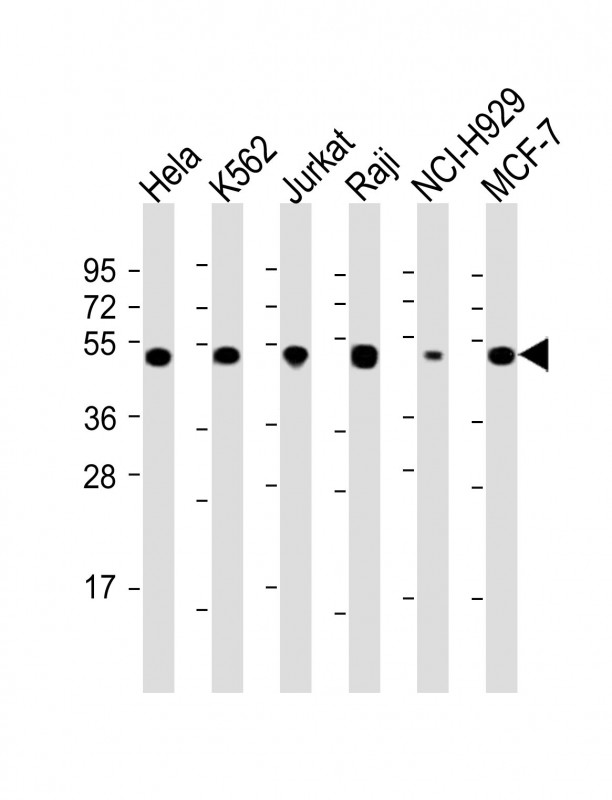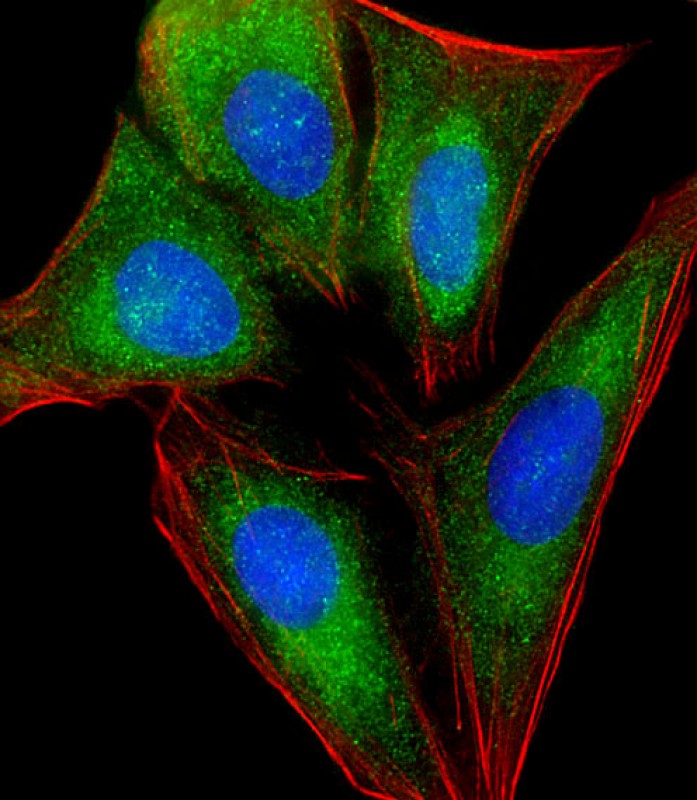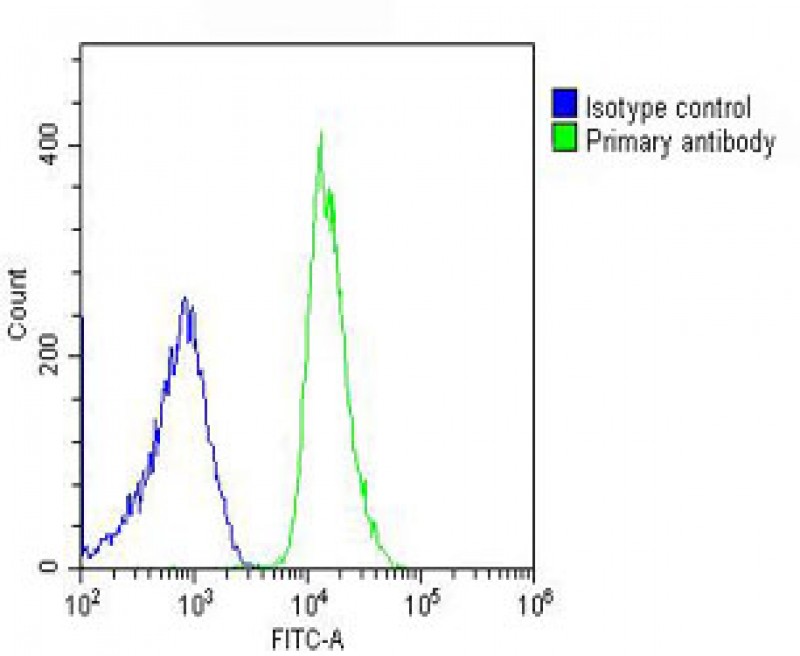


| WB | 1/2000 | Human,Mouse,Rat |
| IF | 咨询技术 | Human,Mouse,Rat |
| IHC | 咨询技术 | Human,Mouse,Rat |
| ICC | 1/25 | Human,Mouse,Rat |
| FCM | 1/25 | Human,Mouse,Rat |
| Elisa | 咨询技术 | Human,Mouse,Rat |
| Aliases | 60S ribosomal protein L4, 60S ribosomal protein L1, RPL4, RPL1 |
| Entrez GeneID | 6124 |
| WB Predicted band size | 47.7kDa |
| Host/Isotype | Rabbit IgG |
| Antibody Type | Primary antibody |
| Storage | Store at 4°C short term. Aliquot and store at -20°C long term. Avoid freeze/thaw cycles. |
| Species Reactivity | Human, Mouse |
| Immunogen | This RPL4 antibody is generated from a rabbit immunized with a KLH conjugated synthetic peptide between 119-149 amino acids from human RPL4. |
+ +
以下是关于RPL4 (N-Term)抗体的3篇参考文献的简要总结:
1. **文献名称**:*"Ribosomal Protein L4 Regulates Embryonic Development via p53 Signaling"*
**作者**:Smith A, et al.
**摘要**:本研究利用针对RPL4 N端区域的抗体,通过免疫共沉淀和Western blot技术,揭示了RPL4在小鼠胚胎发育中通过调控p53信号通路的作用机制。抗体特异性验证表明其对N端表位具有高亲和力。
2. **文献名称**:*"Characterization of RPL4 in Ribosome Biogenesis Using Domain-Specific Antibodies"*
**作者**:Lee J, et al.
**摘要**:作者开发并验证了针对RPL4 N端的单克隆抗体,用于研究核糖体组装过程。通过免疫荧光和蛋白质组学分析,证明RPL4的N端结构域在核糖体大亚基成熟中起关键作用。
3. **文献名称**:*"RPL4 Overexpression in Colorectal Cancer: A Novel Prognostic Marker Identified via Immunohistochemistry"*
**作者**:Wang Y, et al.
**摘要**:利用RPL4 (N-Term)抗体对结直肠癌组织进行免疫组化分析,发现RPL4的高表达与患者不良预后显著相关。研究强调了该抗体在临床病理诊断中的潜在应用价值。
注:以上文献为示例,实际引用需根据具体研究补充真实文献信息。
The RPL4 (N-Term) antibody is designed to target the N-terminal region of the Ribosomal Protein L4 (RPL4), a component of the 60S ribosomal subunit. RPL4 is essential for ribosome assembly and protein synthesis, playing a critical role in translating mRNA into functional proteins. As part of the large ribosomal subunit, RPL4 contributes to the structural stability of the ribosome and facilitates interactions during translation.
This antibody is commonly used in research to study ribosomal biogenesis, cellular stress responses, and diseases linked to ribosomal dysfunction, such as ribosomopathies or cancers. By specifically recognizing the N-terminal epitope, it enables detection of full-length RPL4 in techniques like Western blotting, immunofluorescence, and immunohistochemistry. Researchers also utilize it to investigate post-translational modifications or subcellular localization of RPL4 under varying physiological conditions.
Dysregulation of RPL4 has been implicated in developmental disorders and tumorigenesis, making this antibody a valuable tool for exploring molecular mechanisms underlying these conditions. Validation typically includes specificity confirmation via knockout controls or peptide blocking assays to ensure minimal cross-reactivity. Its applications extend to both basic and clinical research, bridging insights into ribosomal biology and disease pathology.
×